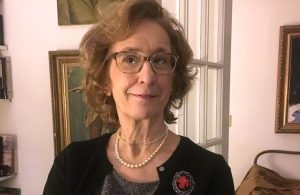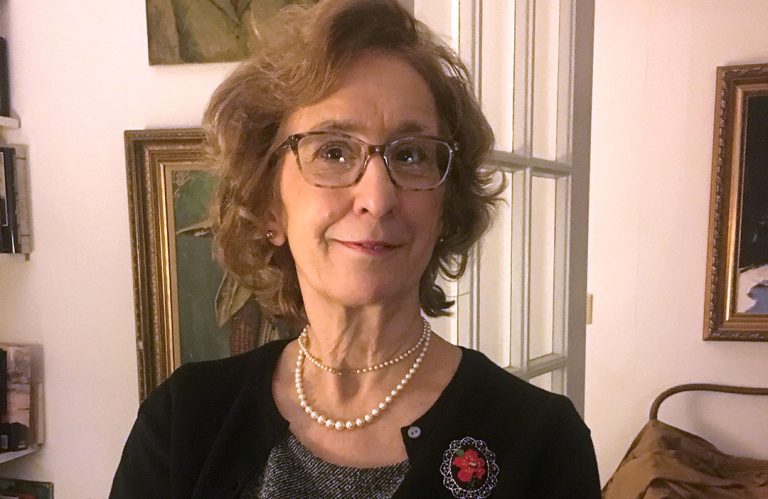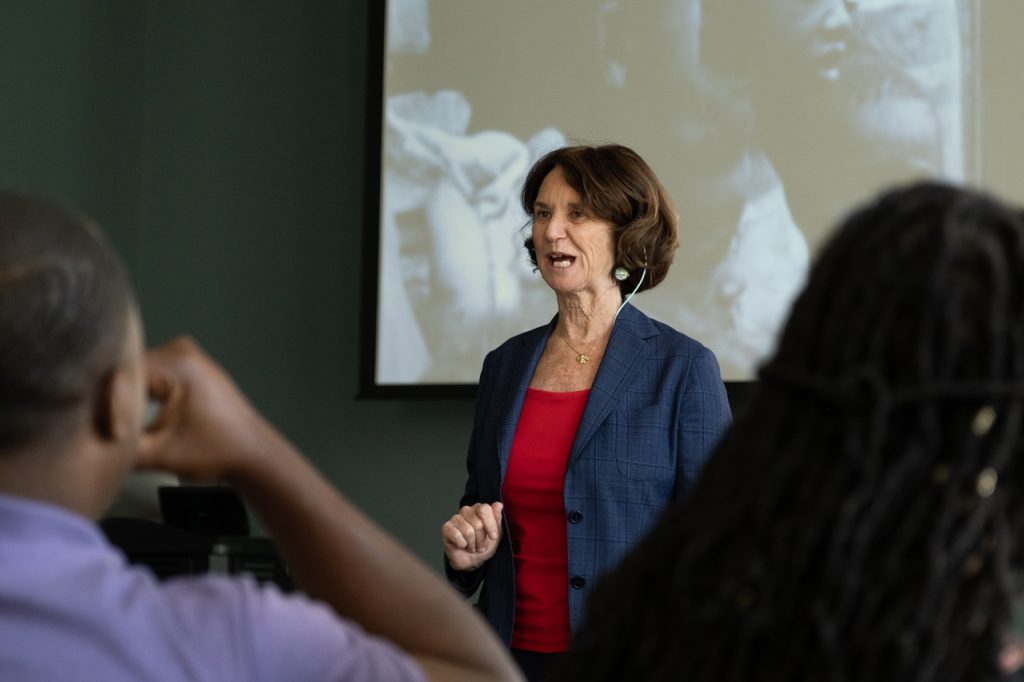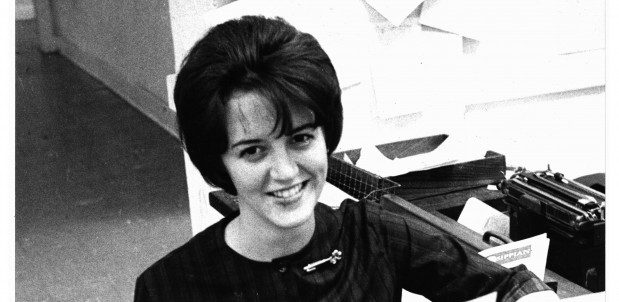
Photo courtesy Larry Wells.
The Overby Center for Southern Journalism and Politics hosted a program titled “James Meredith & the Media: The Legacy of a Riot” on Tuesday, Sept. 27. One of the featured speakers was Kathleen Wickham, a journalism professor at the University of Mississippi.
Wickham is also the author of two books that explore the events that took place in 1962 when James Meredith became the first Black student to enroll at Ole Miss.
“We Believed We Were Immortal: Twelve Reporters Who Covered the 1962 Integration Crisis at Ole Miss,” focuses on American reporters who recount Meredith’s story. It was published in 2017.
“James Meredith: Breaking the Barrier,” an anthology of essays published in 2022, celebrates the 60th anniversary of integration at the university.
I sat down with Wickham to discuss her books, the inspiration for them and the program hosted at the Overby Center.
What inspired you to write and publish “We Believed We Were Immortal: Twelve Reporters Who Covered the 1962 Integration Crisis at Ole Miss”?
Wickham: Historians tend to live in the past. If we don’t know our history, we tend to repeat the errors of the past. Writing and reporting on historical events are a way of realigning the past with the present. It gives us a greater understanding of both. As professors, a third of our job is research. I became almost obsessed with the story of Paul Guihard, the French reporter who was murdered on campus. During the 50th anniversary, I started to read a lot of books about those events, and I was upset that a reporter was murdered on campus, shot in the back from a foot away, and all he got in these books was maybe a sentence or a paragraph. He’s a reporter. He’s one of us. So, that led first to an academic article and, in the process of researching, I collected a whole lot of information. Former Dean (Will) Norton suggested that I write a book that led to “We Believed We Were Immortal.”
In your book, you write about the deaths of many reporters, and even the unsolved murder of one, did you feel any type of pressure to handle those topics with care and respect?
Wickham: Of course. I reached out to Guihard’s family and located his brother in France, and he provided me with background information. As a reporter, you learn quite young to always treat the subject with respect.
“James Meredith: Breaking the Barrier,” … did someone approach you with that opportunity or was it something that you’ve wanted to do for a while?
Wickham: I am a member of the 60th-anniversary committee, and we were talking one day about what would be an appropriate commemorative item for the event. I thought “University. Books. I’ll write a book!” I quickly conceptualized what I wanted to do. I wanted a collection of essays that reflect diverse viewpoints and diverse people. There’s an equal number of male and female, Black and white. And that was one of my goals, to have those diverse voices tell the story of what happened here in 1962.















